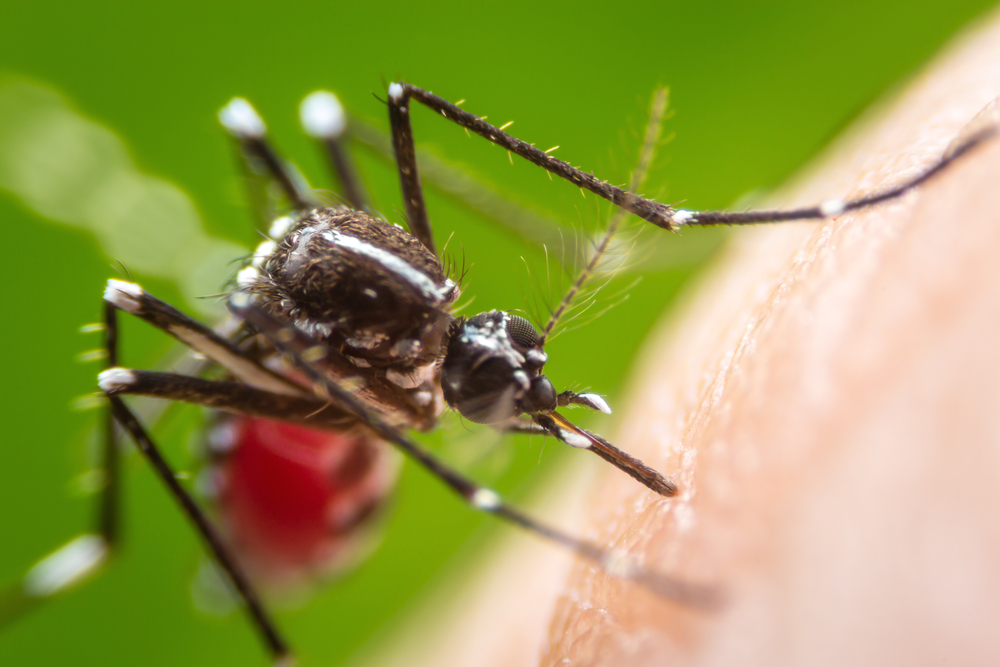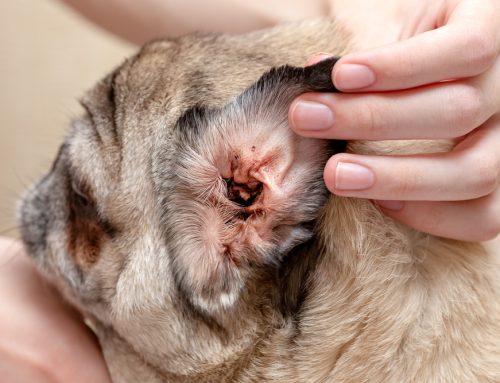People often don’t think much about potential threats from mosquitoes, but pet owners should be aware of the dangers that these tiny pests carry. One of these dangers is that mosquitoes carry and transmit heartworms, parasitic worms that can infect dogs, cats, and other animals. However, proper knowledge and preventive measures can help you protect your furry friend from the devastating effects of heartworm disease.
What is heartworm disease in pets?
Heartworm disease is a serious and potentially fatal condition caused when heartworms live in the heart, lungs, and surrounding blood vessels of infected animals. Dogs and wild canines are the preferred heartworm hosts, but any mammal, including cats and people, can be infected.
An infected mosquito that bites a pet transmits heartworm larvae (i.e., microfilariae) into the pet’s bloodstream, where they travel to the large blood vessels surrounding the heart and lungs and begin reproducing after reaching adulthood at 6 to 7 months of age. Then, the mosquitoes feeding on the infected pet ingest the heartworm larvae, and the life cycle continues.
What are heartworm disease signs in pets?
In the early stages, heartworm-infected pets often show few or no signs, making detecting the disease through visible illness alone a challenge. However, as the infection progresses, signs may include:
- Persistent cough
- Fatigue and weakness
- Reduced appetite and weight loss
- Difficulty breathing
- Swollen, fluid-filled abdomen
If left untreated, heartworm disease can lead to congestive heart failure and ultimately death.
While cats can show the same heartworm disease signs as dogs, they can also develop asthmatic issues, such as wheezing and gagging. Infected cats may also exhibit:
- Vomiting and diarrhea, occasionally with blood
- Incoordination
- Fainting episodes
- Seizures
- Collapse
In some cases, the first—and only—sign that a cat is infected with heartworms is sudden death.
How is heartworm disease diagnosed in pets?
Diagnosing heartworm disease involves a physical exam, blood tests, and X-rays to detect the presence of adult worms and assess the extent of the infection. In most cases, heartworm disease is diagnosed with an antigen test that detects a protein given off by adult female heartworms. A blood sample is also examined under the microscope for the presence of microfilariae, which helps confirm a heartworm disease diagnosis.
How is heartworm disease treated in pets?
Heartworm disease treatment typically consists of a combination of oral medications, injectable medications, and strict exercise restriction. Infected dogs initially may receive oral antibiotics to weaken the heartworms, and then undergo a series of arsenic-based injections in the lumbar muscles that often cause discomfort and nausea. Once treatment begins—ideally, as soon as heartworm disease has been diagnosed—the infected dog must be severely exercise-restricted to prevent potentially fatal complications.
No approved heartworm disease treatment is available for cats. Instead, treatment focuses on alleviating clinical signs in the hopes that the immune system will clear the infection, although the parasites will do permanent damage.
It’s important to note that heartworm disease treatment can be costly and may pose risks to your pet’s health, especially if the infection is advanced. Prevention is always the best approach for this potentially life-threatening condition.
Can I prevent heartworm disease in my pet?

Fortunately, heartworm disease is entirely preventable with veterinarian-prescribed preventives. These medications come in various forms, including chewable tablets, topical treatments, and injections, and are highly effective at protecting your pet against heartworm infection.
In addition to administering preventive medication, you can reduce your pet’s risk of contracting heartworm disease with the following steps:
- Minimize outdoor exposure during peak mosquito activity times.
- Keep your yard clean and free of standing water where mosquitoes breed.
- Use pet-specific mosquito repellents.
- Schedule regular wellness care with your Countryside Veterinary Hospital veterinarian to monitor your pet’s health, conduct heartworm testing, and discuss preventive measures.
Heartworm disease poses a significant threat to your pet’s health and well-being, but with awareness, vigilance, and proper preventive measures, you can help keep them safe. Prevention is always the best medicine for heartworm disease, so schedule an appointment with our Countryside Veterinary Hospital team to protect your four-legged friend.








Leave A Comment